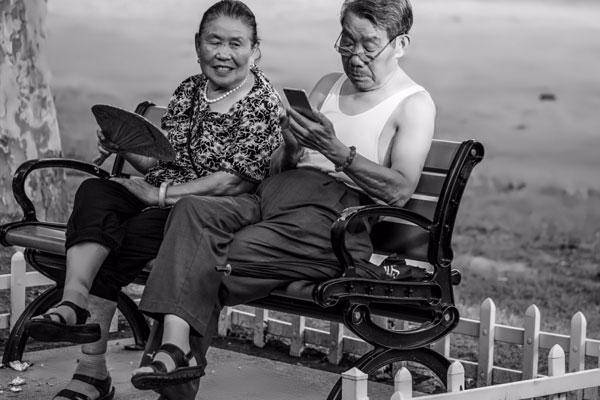In life, for many elderly people, the expectation is to become thinner. After all, there is a saying that “thinness is priceless in old age,” implying that being a bit thin is better for the elderly. Many people truly believe in this truth, to the extent that some elderly people have unwavering faith in such words.
They often strive to control their weight in order to achieve slimness. But is this approach really beneficial? Does being thinner equate to a longer life? Many may not be aware of the answers, so let’s delve into this.
Is thinness really good for “priceless thinness in old age”?
In terms of health, having a slightly plump body is better. Being too thin is actually detrimental to health. It is undeniable that some elderly people, even in their nineties, remain thin. Family members may proudly say, “Being thin is good for longevity.”
However, this is not entirely true. When elderly individuals are too thin, it significantly impacts their health. These effects gradually manifest.
They feel bodily pains. Excessive thinness in elderly individuals means their internal organs lack the protection of fat. Consequently, during certain activities, they may experience pain due to the absence of enough fat to provide cushioning for the bones, causing abnormal pain in body parts.
Their skin condition worsens. Thin older individuals may exhibit excessively dry skin, lacking moisture, reduced secretion of sebaceous glands, and experience issues like spots, keratosis, and abnormal itching, all of which are undesirable.
Their physical condition deteriorates. As age advances, elderly people naturally have frail bodies. If they become excessively thin, their deteriorating physical condition becomes more pronounced. This can lead to situations where even minor activities may leave them feeling weak or dizzy due to the lack of strength.
If the body is already unhealthy, how can claims of longevity hold true? Clearly, the belief that thinner elderly individuals live longer is unfounded. Instead, being too thin can lead to discomfort, which necessitates special attention.
For elderly individuals, there isn’t a set standard for ideal weight. However, judging based on the BMI can indicate whether one is overweight or underweight and reflect their overall health.
Is BMI a reliable measure of thinness in the elderly?
BMI = weight (kg) / height (m) squared. A BMI between 18.5 and 23.9 indicates normal weight, below 18.5 signifies being underweight, while 24 to 27.9 implies being overweight. Exceeding 28 means being in the obese range, which demands attention.
It’s noticeable that two elderly individuals both weighing 130 pounds but with different heights will have varying levels of plumpness, reflected in their BMIs. For instance, a 180 cm person and a 160 cm person with the same weight differ in plumpness, with the shorter individual having a higher BMI, signaling the need for weight loss.
What should be noted?
Elderly individuals must pay attention to many aspects, such as diet. It’s important not to skip meat just for the sake of staying thin in old age. Balancing protein and vegetables in meals is essential. Even if their appetite is reduced, they should eat something. A well-rounded diet including vegetables, fruits, and nuts is crucial.
There you have it, with this information, you now have a better understanding that being thin isn’t always the best for the elderly. Maintaining a moderate level of plumpness is ideal. Using BMI to assess one’s physique and not overlooking it is crucial for determining one’s body type accurately.


